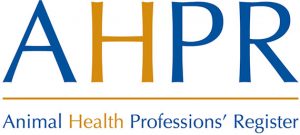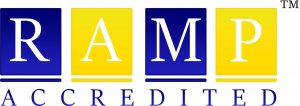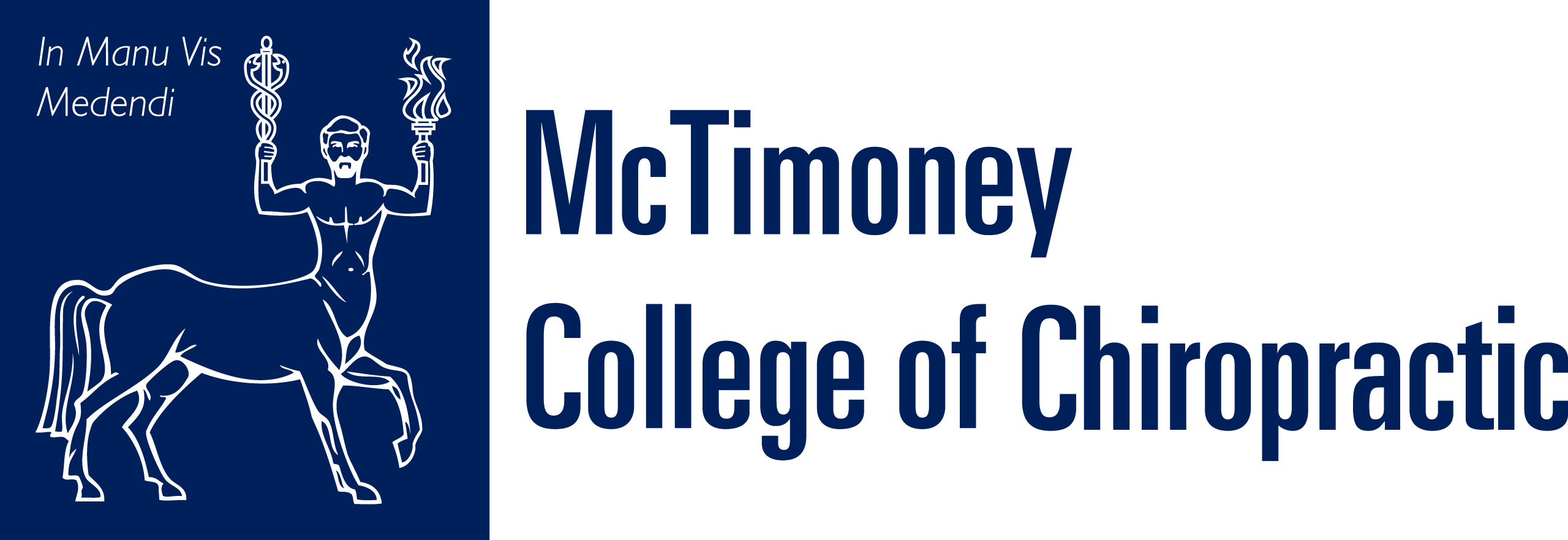Two-year, part-time course
The McTimoney College of Chiropractic offers an MSc Animal Manipulation (Chiropractic) course awarded by Ulster University. The course is recognised by the Register of Animal Musculoskeletal Practitioners (RAMP) and Animal Health Professions Register (AHPR).
The MSc Animal Manipulation (Chiropractic) course is a validated Master’s level programme that trains students in animal manipulation using chiropractic techniques. The course is intended for three distinct groups: students with prior experience in hands-on therapy (such as trained chiropractors, physiotherapists, or other qualified practitioners), individuals holding a BSc degree in Equine or Animal Science, and those who are affiliated with the Royal College of Veterinary Surgeons. Students without manipulative training are required to complete the Graduate Certificate in Animal Therapy. Those lacking formal training can alternatively provide a certified experience portfolio for evaluation.
Veterinary chiropractors are experiencing high demand, with a multitude of opportunities available in maintenance, rehabilitative, and competition performance roles. Many practitioners choose to specialise in these areas or focus on specific species, such as equine, canine, or farm animals.
Veterinary chiropractors often operate as self-employed individuals, serving their local communities and maintaining close connections with veterinary practices. The combination of specialisation and local presence allows them to deliver targeted and personalised care to their animal patients, making a significant impact on the well-being and performance of the animals they treat.
How the Course is Taught
The MSc Animal Manipulation (Chiropractic) course offers an opportunity for individuals seeking to elevate their professional journey. With blended delivery, it suits diverse backgrounds. The overall aim of the course is to offer sound teaching in the theory and practice of animal manipulation, with particular emphasis on the McTimoney technique for animals. It aims to produce safe, competent and reflective practitioners as well as encouraging opportunities for research and further postgraduate studies.
Term time schedule:
- The course runs from January to November.
- Face to face lectures provide application and consolidation of directed theoretical learning that is done at home. Contact occurs roughly once a month over an extended weekend in Year 1, primarily spanning from Saturday to Sunday, with the possibility of including Monday. In Year 2, this changes to focus on practical training.
Year 1:
- The first year of the course covers basic animal sciences where you will gain understanding of the animal in health and disease. This is integrated with essential clinical assessment and evaluation skills which provide the tools for assessing the normal and abnormal functioning of the animal when static and in motion, and leads to the decision in terms of whether, and how, to intervene appropriately.
- The first year of the course takes place at the College and at other venues where we have access to their on-site animals to consolidate and translate academic learning into the animal environment.
Year 2:
- In the second year, the focus shifts to the activities subsequent to that decision, i.e. the skills relating to practical intervention, practice management and lifelong learning.
- You will start the year with a weekend at the College, followed by regular visits to stables and kennels across the country every third Monday. This ensures that you are provided with ample opportunities to practice and apply your skills in real-world animal care environments. The majority of practical training is equine based to reflect the needs of the industry, but canines comprise around 30% of the programme and other animals, such as farm animals, are also introduced.
Research skills are built throughout the programme, culminating in a piece of clinical research. Towards the end of the first year, you will decide on an area of research for your dissertation and you will be assigned a personal supervisor at that time.
After qualifying, Animal Practitioners are required to work with veterinary approval. For those seeking to practice internationally, it is essential to adhere to the regulations set by the respective governing bodies of each country.
Entry Requirements
Applicants are expected to have one of the following qualifications:
- A member of the Royal College of Veterinary Surgeons.
Or
- Holding a professional qualification in Chiropractic or Physiotherapy, which would qualify the holder for registration with the General Chiropractic Council or Health Professions Council as appropriate.
Or
- Holding an honours degree in Animal Health or Equine Science or other University-level degree where the course leader is satisfied that the animal experience of the applicant is sufficient to successfully complete the course.
Or
- Students who do not hold an animal science degree but have degree level qualifications and significant animal experience may apply for this course under the Assessment of Prior Experience and Learning (APEL) system.
Applicants who do not hold a professional qualification in Chiropractic or Physiotherapy must successfully complete the College’s Graduate Certificate in Animal Therapy course.
Applicants who hold a professional qualification in Chiropractic or Physiotherapy are exempt from all elements of the College’s Graduate Certificate in Animal Therapy course, except for the module on safe handling of animals. All applicants for the MSc Animal Manipulation (Chiropractic) course must complete the examination for this module, and some applicants may be required to complete the module itself.
Applicants must meet the following criteria:
- All students must satisfy the interviewers of their aptitude for animal work.
- Be 21 years or over when the course starts.
- Hold a BSc (Hons) degree in equine, animal, veterinary or similar science attaining minimum 360 credits. Relevant higher qualifications may qualify.
- Knowledge of basic science is necessary.
- All students must provide evidence of an up-to-date tetanus vaccination and provide adequate personal liability insurance.
Candidates may be accepted under special provision if they fail to meet the specified entry requirements provided that they have suitable alternative science based qualifications. Other qualifications will also be taken into consideration under the APEL (Accreditation of Prior Experience and Learning) system.
All students are expected to have the facility and the ability to study in their own home and will be required to purchase certain equipment and textbooks throughout the duration of the programme. While tablets may seem convenient, many students encounter limitations that prompt them to favour the versatility and functionality of laptops. We strongly recommend that students use a laptop throughout their studies. Additionally, access to the internet is compulsory, as it becomes progressively an essential tool to facilitate learning.
If English is not your first language
If English is not your first language and you do not hold an honours degree that was delivered in English, you will be required to provide certified proof of ability in written and spoken English to, at least, IELTS 6.0 overall (with a minimum of 5.5 in each component).
Entry Test
We reserve the right to ask you to sit an entrance exam.
Interviews
No offers are made without interview. Candidates will be selected to progress to interview based on the qualifications, work experience, personal statement and reference provided in their application. Interviews take place throughout the year.
Applicants called for interview are assessed by a panel for their sense of vocation, motivation and qualities of determination and aspiration.
Application Process
All applications for the MSc Animal Manipulation (Chiropractic) course must follow the application process below to be considered for enrolment.
Complete the online application form. Please ensure that you have all the required documentation ready.
↓
The Admissions Team will review your application and work with you to ensure you meet all the course requirements.
↓
Upon completing the review process, the Admissions Team will contact you to inform you of your acceptance status.
Intake Dates
| Applications Close | Intake Dates |
| December 2024 | January 2025 |
Course Progression
| Modules | Year 1 | Year 2 |
| Animal Sciences | ||
| Clinical Assessment | ||
| Clinical Evaluation | ||
| Research | ||
| Practical & Professional Skills | ||
| Practical Skills (Equine) | ||
| Practical Skills (Canine) |
Course Modules
| Year 1 | Credits | |
| Animal Sciences | Compulsory | 20 |
| Clinical Assessment | Compulsory | 15 |
| Clinical Evaluation | Compulsory | 15 |
| Research | Compulsory | 10 |
| Year 2 | ||
| Research | Compulsory | 60 |
| Practical & Professional Skills | Compulsory | 15 |
| Practical Skills (Equine) | Compulsory | 30 |
| Practical Skills (Canine) | Compulsory | 15 |
Assessment
You will be assessed in a variety of ways depending on the module and stage development. Some of these assessments will involve animals and owners, where clinical reasoning skills as well as physical assessment skills and professionalism are all considered. You will also be encouraged to reflect and feedback on your own experiences, learning and development.
Forms of assessment can include:
- Assignments
- Practical exams
- Oral exams and presentations
- Portfolio and research proposal and dissertation
Location
The MSc Animal Manipulation (Chiropractic) course is delivered at our Oxford location near Abingdon. Practical training venues span across the entire UK, ensuring widespread accessibility to a diverse range of animals. This encompasses everything from happy hackers to high-performance racehorses, as well as from beloved pet dogs to competitive sporting dogs.
Tuition Fees & Associated Costs
The entire year’s course and registration fees are due on commencement of the MSc Animal Manipulation (Chiropractic) course.
| Payment Type | Value | |
| Course Fee | Annual payment | £5,500 |
| College Registration Fee | Single payment | £150* |
| McTimoney Animal Association Student Membership | Single payment | £50 |
| Animal Handling Day | Single payment | £100** |
| *Only applicable if this fee has not been paid yet
**Includes examination |
||
A deposit of £200 will need to be paid within 48 hours of accepting your offer, in order to secure you place.
In addition to your course fees, there may be additional charges associated with your studies, which include:
| Value | |
| Resit fee – Assignments and written exams | £75 |
| Resit fee – Practical assessment | £100 |
| Resit fee – Clinical assessment | £250 |
| Value Range | |
| Personal liability insurance | £85 – £100 |
Tuition Fee Funding & Maintenance Loans
Students intending to study at the college are eligible to apply for a Post Graduate Loan up to the maximum £11,570. These can help cover tuition fees and living costs whilst you are studying.
How you apply for student finance varies depends on where you live. You will find detailed information on the application process and the amount of funding you will be entitled to on the following sites:
- Postgraduate Master’s Loan
- Student Finance Applications – England – or for further information and guidance please visit the dedicated microsite
- Student Finance Wales
- Student Finance Northern Ireland
You can apply for funding online and it is recommended that you submit your application early to ensure that your funding is with you by the time you commence your studies.
Please note, if at any point during your studies you change modes of study or the speed at which you complete your studies, we will be required to notify the Student Loans Company as this may have funding implications.
Payment Plans
If you are self-funding, we offer flexible payment plans that let you spread the cost of your course across the duration of your studies.
For advice and further information on any of the above, please visit student finances or contact us.
Postgraduate
Within the veterinary industry, graduates working as paraprofessionals in the musculoskeletal sector are expected to undertake Continuing Professional Development (CPD) according to the guidelines set by the McTimoney Animal Association and current registers (RAMP and AHPR).
Graduates can apply for membership in the McTimoney Animal Association (MAA), a professional organisation that registers, supports, and promotes graduates from the McTimoney College of Chiropractic. Practising members must fulfil CPD hours, equivalent to the requirements of the Royal College of Veterinary Surgeons (RCVS) for their registrants and adhere to a strict code of conduct and ethics while maintaining insurance. Additionally, student membership provides access to abundant resources and a supportive community of practitioners, facilitating the ongoing development of skills, exchange of information, and valuable industry experience within the animal chiropractic community.
The MAA holds a register of qualified practitioners, and the two-year MSc Animal Manipulation (Chiropractic) course has been recognised by the Register of Animal Musculoskeletal Practitioners (RAMP) and Animal Health Professions Register (AHPR), which means you can then go on to apply directly to either register upon qualification.


Why Choose McTimoney College?
- Highly regarded qualifications
- High employment of new graduates
- A small and friendly college environment
- Small class sizes and excellent tutor ratios
- Early hands on experience
- Well-experienced in-practice faculty
- State of the art teaching facilities
- Strong student support structure
- Strong alumni network and career support services
- Diverse and inclusive learning environment
- Integration of modern technology
Questions about the MSc Animal Manipulation (Chiropractic) course?
Choosing your course is a big decision. If you have any questions about the MSc Animal Manipulation (Chiropractic) course, the McTimoney Admissions Team is ready to provide the answers. Kindly complete the form below, and we will respond to your questions promptly.

